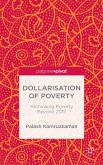This groundbreaking book provides a new perspective on equality by highlighting and exploring affective equality, the aspect of equality concerned with relationships of love, care and solidarity. Drawing on studies of intimate caring, or 'love labouring', it reveals the depth, complexity and multidimensionality of affective inequality.
An Irish Times Book of the Year, 2009
'This brilliant qualitative research explores the connections among emotional connection, moral obligation, and care provision. A diverse set of thoughtful and sensitive essays explain a profoundly important cause of persistent gender inequality.'
- Professor Nancy Folbre, University of Massachusetts, USA
'This is a unique empirical and theoretical project...I can't think of another book like it...It is a definitive statement of a timeless problem - how to address the private sphere in all its complexity. Social policy is driving further into the private sphere and this book highlights just what is at stake. It is a book that anyone concerned about social justice cannot afford to ignore.'
- Professor Madeleine Arnot, University of Cambridge, UK
'...this book offers a wonderfully fresh and holistic perspective on the pervasive problem of inequality in the carrying out and the receipt of care and love.' - Gender& Development
'This brilliant qualitative research explores the connections among emotional connection, moral obligation, and care provision. A diverse set of thoughtful and sensitive essays explain a profoundly important cause of persistent gender inequality.'
- Professor Nancy Folbre, University of Massachusetts, USA
'This is a unique empirical and theoretical project...I can't think of another book like it...It is a definitive statement of a timeless problem - how to address the private sphere in all its complexity. Social policy is driving further into the private sphere and this book highlights just what is at stake. It is a book that anyone concerned about social justice cannot afford to ignore.'
- Professor Madeleine Arnot, University of Cambridge, UK
'...this book offers a wonderfully fresh and holistic perspective on the pervasive problem of inequality in the carrying out and the receipt of care and love.' - Gender& Development








